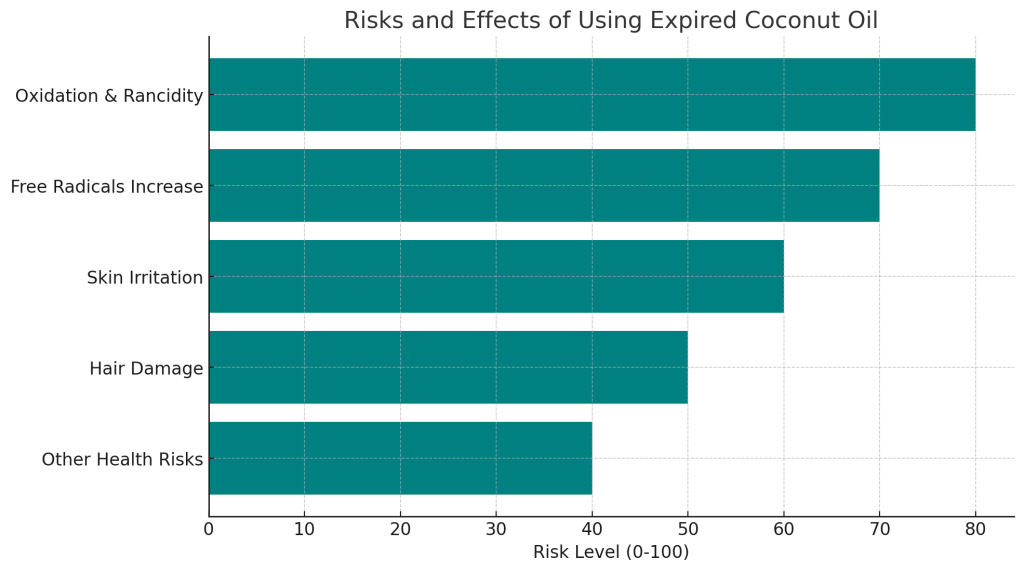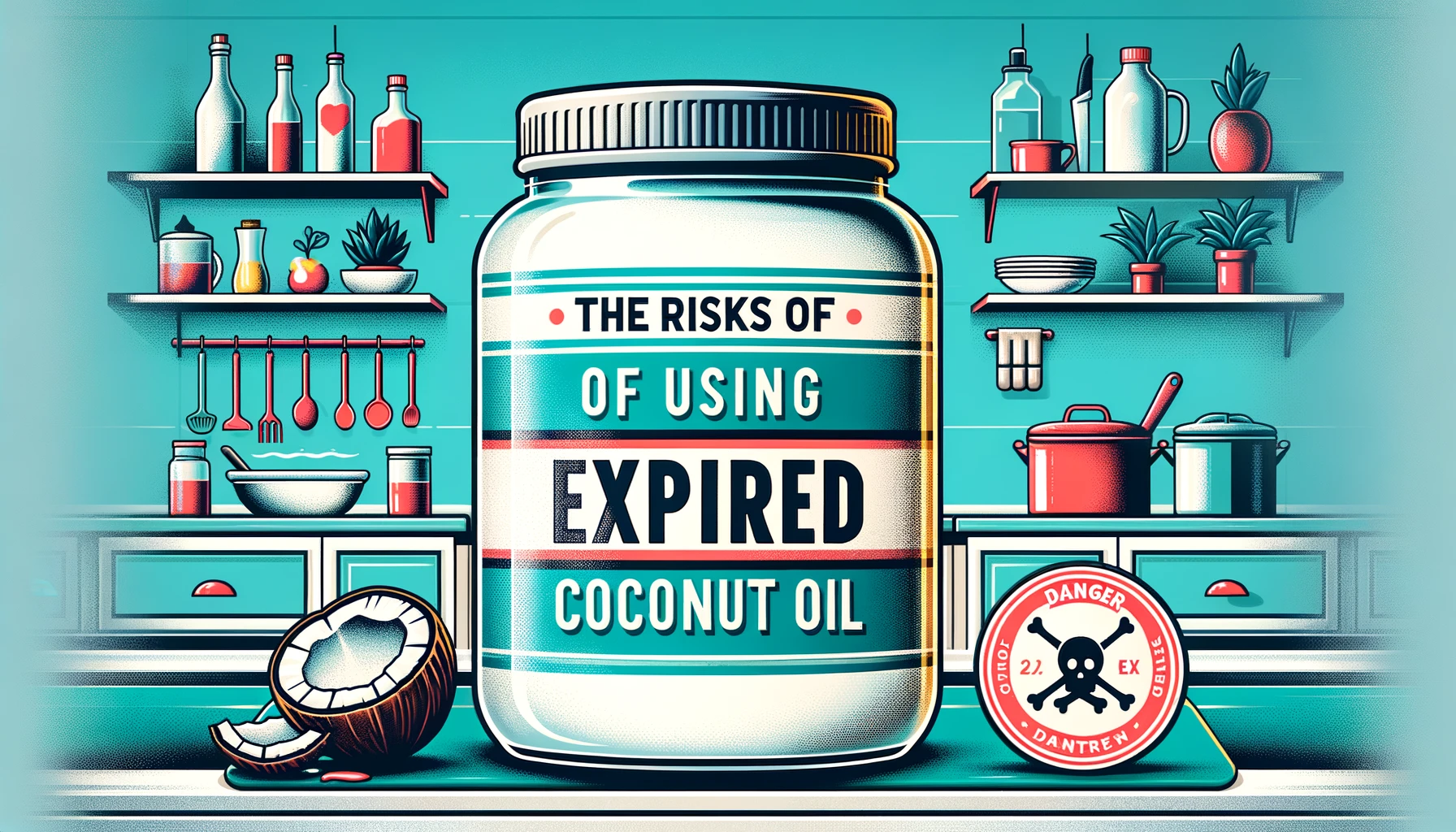Key Takeaways Table
| Aspect | Detail |
|---|---|
| Main Topic | Using Expired Coconut Oil |
| Risks of Expired Coconut Oil | Potential rancidity, harmful free radicals, oxidation, bacteria and contamination |
| Health Implications | Skin issues, inflammatory and cardiovascular diseases, damage to arteries and DNA cells |
| Signs of Spoilage | Foul smell, bitter taste, yellowish color, lumpy consistency, dark spots |
| Long-term Health Effects | Potential cumulative effects over time, including increased risk of health issues |
| Storage Recommendations | Store in cool, dry place away from sunlight, observe expiration dates |
The Risks of Using Expired Coconut Oil
Coconut oil is a versatile and popular ingredient used for cooking, skin care, and hair care. However, like any natural product, it can go bad over time. Using expired coconut oil can lead to several problems.
Oxidation and Rancidity
When coconut oil expires, it undergoes oxidation and can become rancid. This process generates harmful free radicals, which can damage your arteries and DNA cells. These free radicals are associated with various health risks, including skin problems and chemical reactions from contaminants.
Increased Free Radicals
Consumption or topical application of spoiled coconut oil can increase the body’s free radicals. Free radicals are linked to inflammatory and cardiovascular diseases, posing a significant health risk.
Health Implications
While there’s limited research on the specific effects of using expired coconut oil, it’s understood that rancid oils can undergo chemical changes. These changes may destroy vitamins and affect the oil’s antioxidant properties. In extreme cases, such as with oils high in omega-6 fatty acids, rancid oils have been associated with tumor growth. However, coconut oil has low levels of omega-6, so these findings are not directly applicable but still cause for concern.
How to Identify Expired Coconut Oil
Knowing how to identify expired coconut oil is crucial to avoid these risks. Here are some signs:
- Smell or Taste: Fresh coconut oil has a pleasant, sweet smell. If it starts smelling stale or foul, or tastes bitter, it’s likely gone bad.
- Color: Pure coconut oil is white or transparent when melted. If it turns yellowish, it’s a sign of spoilage.
- Consistency: Fresh coconut oil is smooth. If it becomes lumpy, it’s a sign of expiration.
- Dark Spots: Despite its antimicrobial properties, expired coconut oil can develop spots of bacteria or mold.

Storage Tips to Prolong Shelf Life
Proper storage is key to extending the shelf life of coconut oil. It should be stored in a cool, dry place, away from direct sunlight. Be sure to check expiration dates and store the oil properly to ensure its quality.
Implications of Using Expired Coconut Oil on Skin and Hair
Using expired coconut oil on the skin or hair can also have specific implications:
- Skin: Expired coconut oil can cause skin irritation, rashes, or even more severe skin reactions due to the presence of bacteria, free radicals, and other contaminants. For a deeper understanding, check out What Happens If You Use Expired Coconut Oil On Your Skin?.
- Hair: Similarly, applying expired coconut oil to hair might lead to scalp irritation or damage the hair’s texture and quality. Learn more about this in What Happens If You Use Expired Coconut Oil On Your Hair?.
Preventing the Use of Expired Coconut Oil
To prevent the risks associated with expired coconut oil, it’s essential to:
- Regularly Check Expiration Dates: Always observe the expiration date on the coconut oil container.
- Proper Storage: Store coconut oil in a cool, dark place to prevent it from going bad prematurely.
- Use It Regularly: Regular use can prevent the oil from expiring before you’ve used it up.
- Buy in Smaller Quantities: This ensures you use it up before it has a chance to expire.
Alternative Uses for Expired Coconut Oil
While it’s not recommended to consume or apply expired coconut oil on your body, there may be alternative uses where its quality is less of a concern, such as in homemade candles or as a lubricant for squeaky hinges. However, always exercise caution and ensure it’s safe for the intended use.
As this is the final generation for the article, a conclusion will be provided.
Final Thoughts: Navigating the Risks of Expired Coconut Oil
In conclusion, the use of expired coconut oil is a health risk not worth taking. Whether it’s for culinary, skin, or hair care purposes, the potential adverse effects of rancidity, bacterial contamination, and the presence of harmful free radicals make it imperative to use coconut oil within its shelf life.
Understanding the signs of spoilage and practicing proper storage techniques can go a long way in ensuring the safety and effectiveness of this versatile oil. Remember, when in doubt about the quality of your coconut oil, it’s safer to discard it than to risk the potential health hazards.
For more insights into the world of coconut products and their impacts on health and lifestyle, explore other informative articles on CoconutSphere.com.

